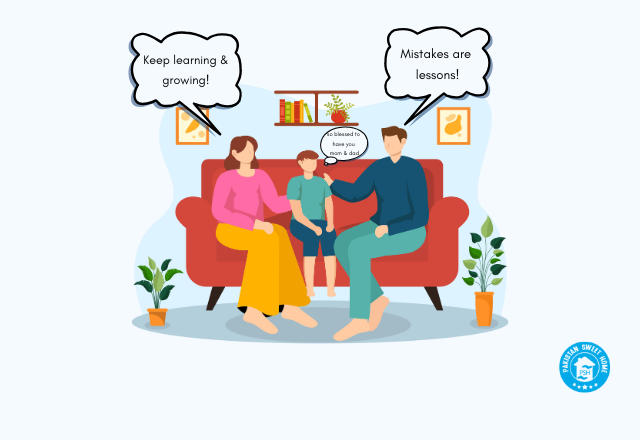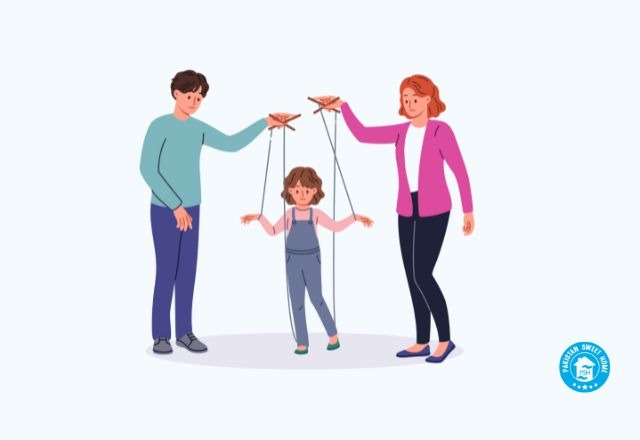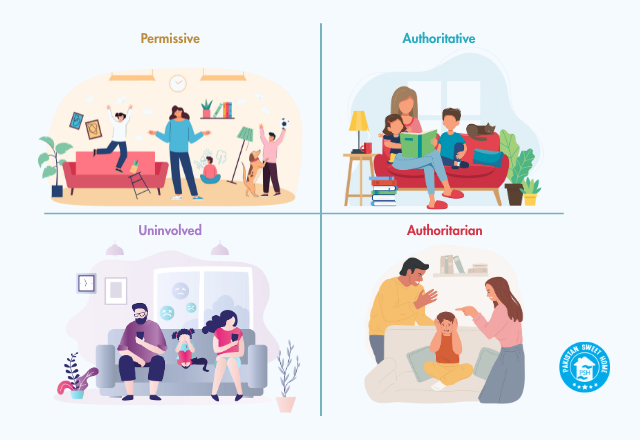Parenting can feel like a balancing act; gentle parenting nurtures understanding, empathy, and respect.
Unlike traditional discipline through punishment, gentle parenting focuses on love, guidance, and healthy communication. This method fosters a connection with your child, promoting emotional awareness and confidence as they grow.
Here’s a closer look at gentle parenting in action, using real-life examples that can inspire parents everywhere.
1. Understanding Emotions Through Validation
Imagine a child throwing a tantrum because they can’t have their favorite toy. A common reaction might be to scold or reprimand the child for their outburst.
However, gentle parenting suggests a different approach: empathy and validation.
When your child is upset, avoid saying dismissive phrases like, 'Stop crying, it’s not a big deal.' Instead, validate their feelings by saying, 'I see you’re upset because you want that toy.'
By acknowledging your child's feelings, you’re teaching them that they are valid and that it’s okay to feel upset sometimes. This helps them develop emotional intelligence and resilience.
2. Positive Reinforcement Instead of Punishment
Gentle parenting encourages using positive reinforcement rather than punishment to shape a child’s behavior. Instead of focusing on what they’ve done wrong, this approach emphasizes recognizing good behavior and encouraging it.
If a child shares their toys with a sibling, praise them by saying, “You did a wonderful job sharing your toys today! That was so kind of you.”
This type of reinforcement helps children feel proud of their actions, and they are more likely to repeat them in the future.
3. Setting Boundaries with Compassion
Setting boundaries is an essential part of gentle parenting, but it’s done with respect and understanding. The goal is not to impose strict rules, but to guide children through clear and compassionate expectations.
If your child refuses to put down their tablet at bedtime, avoid yelling. Instead, explain, "I know you’re enjoying your game, but it’s bedtime now, and sleep is important so you can feel your best tomorrow."
Then, offer an alternative, like reading a story together. The focus is on clear expectations and respectful explanations, encouraging compliance without fear.
4. Modeling Emotional Regulation
Children often learn how to manage their own emotions by observing how their parents react to challenging situations. Gentle parenting involves modeling emotional regulation by staying calm, even in stressful moments.
If a parent feels frustrated in a situation like traffic, avoid visible upset or complaints. Instead, say, "I’m feeling a little stressed because we’re late, but I’ll take a deep breath and stay calm.' It’s okay, we’ll get through this together.”
This teaches the child that it’s okay to feel frustrated but it’s important to manage those feelings with patience and calmness.
5. Encouraging Independence and Responsibility
Gentle parenting also emphasizes the importance of fostering independence in children while making them feel supported. It involves giving them age-appropriate tasks and trusting them to take responsibility.
If a child is old enough, allow them to choose their clothes or help set the table. If they make a mistake, gently guide them without reprimanding them.
For example, “I see you chose a sweater for a hot day. How about we pick something cooler? Let’s do it together.”
This encourages problem-solving, confidence, and independence while maintaining a positive connection.
6. Fostering Empathy by Teaching Perspective
Teaching empathy and perspective-taking is a key component of gentle parenting. Children who grow up understanding the feelings of others are more likely to develop kindness and compassion.
If your child accidentally hurts a friend, instead of just saying “Say sorry,” try asking, “How do you think your friend feels right now?”
After the child responds, guide them to understand the impact of their actions. Explain, 'When we hurt someone, it can make them feel sad or upset.' How do you think we can make them feel better?”
This helps the child not only understand the feelings of others but also empowers them to take responsibility for their actions.
7. Offering Choices and Promoting Autonomy
Gentle parenting is all about empowering your child to make decisions and fostering their sense of autonomy. Rather than imposing your will, give them options that make them feel in control.
If it’s time to clean up, instead of demanding, “Pick up your toys right now!” try offering a choice. “You have two options—do you want to clean up your blocks first, or your dolls?”
This gives the child a sense of control while still achieving the desired outcome.
8. Responding to Challenging Behavior with Understanding
When a child acts out, gentle parenting encourages calm and understanding responses, not punishment.
If a child hits their sibling out of frustration, a gentle parent might respond by saying, “I see that you’re feeling upset, but hitting is not okay. Let’s talk about what’s bothering you and find a better way to handle it.”
This approach helps the child understand their emotions and teaches them to express themselves more appropriately.
9. Encouraging Open Communication
Gentle parenting fosters an environment where children feel safe to express their thoughts, feelings, and concerns. By actively listening and engaging in dialogue, parents help children feel heard and validated.
"If a child comes to their parent with a worry or fear, like being scared to sleep alone, a gentle parent responds.
They might say, 'I understand that you’re scared.'" Let’s talk about what’s making you feel this way. We can think of some ways to make you feel safer.”
This allows the child to express their fears and feel supported in finding solutions, rather than dismissing or ignoring their feelings.
10. Using Natural Consequences Instead of Punishment
Gentle parenting uses natural consequences, helping children learn from their actions instead of arbitrary punishment.
If a child forgets to put their lunchbox back in the backpack, don’t scold. Instead, allow them to experience the natural consequence of being hungry at school.
When the child returns home, a parent might say, “I noticed you didn’t have your lunch today. What do you think happened? Next time, how can we make sure your lunchbox is ready?”
This allows the child to more thoughtfully connect their actions with the outcome, fostering responsibility and problem-solving skills.
Why Gentle Parenting Works
Gentle parenting creates a relationship built on mutual respect. When children feel understood, valued, and supported, they are more likely to behave in positive and emotionally intelligent ways.
Moreover, it reduces power struggles, creates a secure emotional environment, and strengthens the parent-child bond.
In conclusion, gentle parenting isn’t about being permissive or lenient. It’s about creating an environment where your child feels emotionally safe and respected. By incorporating these examples into your daily life, you raise a child who manages emotions. They also learn empathy, problem-solving, and interacting with kindness and respect.
Just as in sponsoring an orphan through Pakistan Sweet Home, providing a stable and loving environment for a child encourages their growth and development, helping them become compassionate and emotionally intelligent individuals.
Turn Compassion into Action

info@pakistansweethome.org.pk
(051) 4865856
+92 335 1118477













